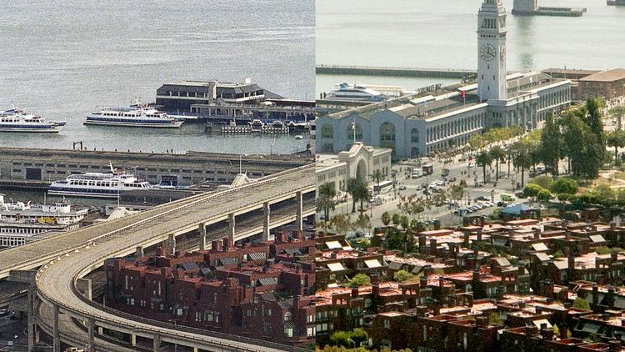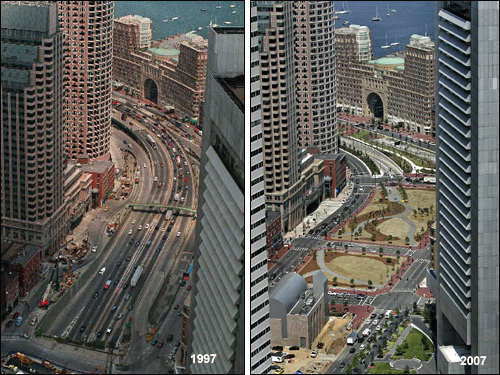During the 50s and the 60s things where wrong, really wrong, when it comes to transportation diversity. The car filled the gap of the American dream: a big house on the suburbs and a work downtown required a way of transportation suitable for very low density in an individualistic society. Long and wide roads were built, and enormous wounds in the form of highways divided entire cities.
Most people here in Seattle love Vancouver, Canada. People mention how beautiful and nice it feels and here is one key thing: it isn’t crossed by a highway in the way most American cities are. Having a highway-divided city has one potential advantage: fast commuting. However, every single day its capacity is exceeded and urban highways are full and slow at peak hour and when there is a big event. Moreover, the properties around it loose value since nobody wants to live next to a source of pollution and noise. Not to mention the fact that, if you have a business and you aren’t a big brand, nobody driving on a highway is going to see you and take a detour to stop by.
Luckily, though, the US has been healing these wounds. A clear example is San Francisco’s embarcadero area. Previously a noisy double decker freeway, the 1989 earthquake helped transform it into a beautiful open space that attracts a lot of tourists and locals.
A similar thing could be said about Boston’s Big Dig which, despite having some issues, managed to substitute a high density highway with a more pleasant open space and nature
And it isn’t only roads, Chicago’s Millennium Park turned a bunch of railroads into one of the most popular spots in the city. And Barcelona’s railways were rebuild underground to improved the whole city.
And now, Seattle, what are you waiting for?.

